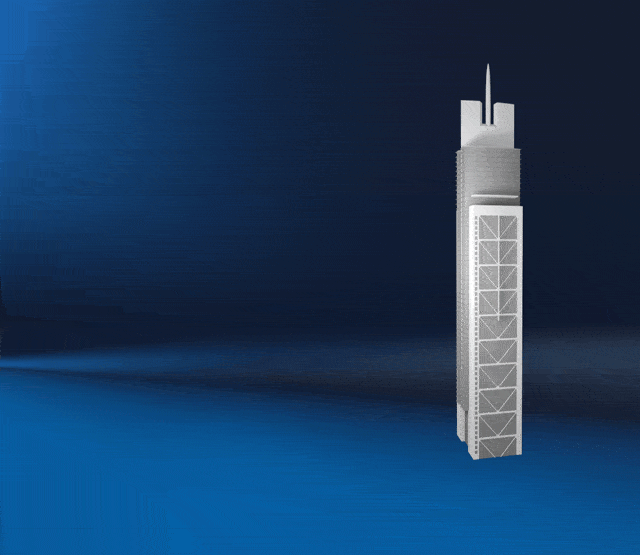How Innovations and Technology are Shaping the Way CRE Business is Done

Steve Weikal is a lecturer, researcher, and the CRE Tech lead in the MIT Real Estate Innovation Lab, focused on innovative new technology and business models that disrupt the traditional ways of developing, transacting and managing real estate. He is also Head of Industry Relations at the MIT Center for Real Estate, responsible for managing relationships between the Center and its global network of industry partners, and founder of MiT Real Disruption, a successful series of conferences discussing the impact of emerging technology on the real estate industry, that is now part of the international CREtech platform.
Weikal is set to present the opening remarks at the DLA Piper 2019 Global Real Estate Summit exploring the intersection of real estate and technology and the ideas that will shape the future of the industry. We asked him to preview that discussion and expand on the role of technology in real estate.
Q: What innovations in the real estate industry do you find most compelling?
I'm interested in the trend toward what we call "real estate fracking." Real estate is no longer a fixed asset. It's flexible and it's fluid. The idea is that real estate assets are getting broken up into smaller pieces and reconfigured into higher-value combinations (think co-working spaces), which has implications for capital, occupiers, investors and developers. It's compelling because it will fundamentally alter the business of the "built environment," or human-made environment in which we live and work.
Not only do we have co-working in the traditional sense – we also have new, specialized versions that are for specific industries or types of users. For example, Impact Hub is a global co-working company designed just for socially responsible startups. CyberTech and BioLabs, meanwhile, designate space just for cyber technology and biotechnology companies. Fracking in residential real estate, on the other hand, has made it possible to monetize empty apartments and increase optimization by leasing them out in the short-term until long-term tenants have signed on.
There are so many new examples of how to unlock value in the underutilized aspects of the real estate. All the rules are off or changing, which is very exciting as founders of new ventures and real estate startups think about entering the market with new and innovative business models, all enabled by technology.
Q: Where does blockchain play a role in real estate?
Simply put, blockchain is software infrastructure. It's been stated that Blockchain is to transactions what the internet was to information. In other words, nobody ever has "to do" the internet. Rather, they use everything that sits on top of the internet. People often ask where to begin with blockchain, and I say that they'll never have to "do" blockchain. Rather, they'll use the applications that are built on top of it.
The premise of blockchain is that everybody is trusted and therefore, the application removes the need for third party verification. In real estate, blockchain can enable a secure transactional environment that's fully transparent, where we know all of the players and the steps throughout the existing transaction process are automated with digital contracts and self-executing protocols.
However, it's unlikely that third parties in the US are going to get eliminated entirely because they are so ingrained in the existing legal and financial system. Tokenization, on the other hand, where you take the asset and legally assign it to a certain number of units of a certain value, might be more realistic. In this scenario, you have a system based on blockchain where tokens represent a percentage of the asset, and these tokens (or slivers of interest in an asset) are traded in a safe, secure environment.
Q: What other technologies are enabling change and how people do business?
I'm excited about the power of machine learning to get at the immense amount of data that is now being generated within the real estate market, which will help inform buying, selling and leasing decisions in the future. At MiT, we're working on how to better understand the real value of real estate, rather than the perceived value. We focus on these immense amounts of data and how to do a better job of using that data to make smarter business decisions.
The real estate industry in so many ways is tradition bound. For decades, it was about the building, sale, and occupation of defined physical spaces. Real estate is becoming increasingly about the experience within those spaces. The design and functionality are very interesting and exciting part of the business and that's partly because the focus is on the use rather than the brick and mortar.
Technology is enabling a new relationship between humans and the environments in which they live and work. People want more out of their spaces – they want their co-working space to have a gym, a coffee bar. LiquidSpace, for example, is a company that began by leasing out conference rooms inside tenant spaces in office buildings for one- or two-hour blocks of the day. It's experiential as much as it is functional, and it's all fluid.
Q: How would you advise a real estate company to stay competitive in the face of these changes?
Keeping up with the daily barrage of new information and ideas can be a bit overwhelming. The best way to start is to follow the conversations and business issues that are inspiring and encouraging industry startups. By that, I mean try to digest the same reading materials and news, sign-up for real estate newsletters or follow innovators on social media.
I would also recommend attending live gatherings where ideas are shared. The best industry conferences and events take advantage of the knowledge and leadership within the industry to discuss new and emerging trends. Today, these events are covering innovation and technology within real estate – DLA Piper's Global Real Estate Summit is one such example.
Lastly, identify opportunities to solve a problem. If there's an ongoing challenge in your business, a startup is probably addressing it or attempting to find a solution. Look at current startups and the problems they are trying to solve – Is there another approach? Can they do it better? These dialogues are a good place to get into the conversation and learn about what transformations are taking place in the industry, and what problems may need solving in the future.
